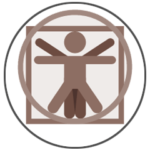Are there any differences between “Che”, “Chi”, “Cosa” or “Che Cosa?” for asking “Who” or “What?” in Italian? Set phrases audio examples and Quiz
We are going to learn some similarities and differences between three words; “che”, “chi”, and “cosa”.
There are many things that I am not going to explain, in particular, “che” is the 9th most common Italian word, so I’m just clarifying some doubts related to the confusion with “chi”. Same goes with “che” compared to “cosa”.
Cominciamo?
CHE vs COSA vs CHE COSA as in “What?”
Let’s start with the first dilemma. How should one ask “What” in Italian?
Veniamo al dunque. Are the following three sentences different?
- Che mangi stasera?
- Cosa mangi stasera?
- Che cosa mangi stasera?
The short answer is no, there are no differences between “che”, “cosa” or “che cosa” as in “What…?” They are all correct questions. What (thing) are you eating tonight?
If we translate word by word, “che” as an interrogative pronoun means “what” and “cosa” means “thing”.
Until a few decades ago, “che? ” and “che cosa ?” as in “what?” used to be the only options accepted. However “Cosa?” used by itself became prevalent with time. Literally “Thing you are eating tonight?”
Of course, “Che cosa” sounds like a duplication to non Italian ears and “Cosa” alone sounds incomplete.
The question is not banal nor uncommon among native speakers and finds a clear answer in the Accademia della Crusca, the Italian Academy of Linguistics. It all depends on regional Italian.
“Cosa” alone, is used more in Northern Italy and Sardinia, “Che” in the centre-south and “che cosa” is the classic literary form, valid everywhere. They are all perfectly interchangeable in spoken Italian.
I can confirm that in Milan “cosa” is arguably more common than the other two, although “che cosa” is also an option, and “che” alone sounds non milanese. In Roma for example, people tend to use “che” alone.
- Che stai facendo?
- Cosa stai facendo?
- Che cosa stai facendo?
If we dig a little and look up classic authors, we can articulate better the answer.
Boccaccio (1300s), usually wrote “che cosa”, which is somehow more elegant and makes more sense, when we pay attention to the actual meaning (“what thing..?”, “che cosa…?”).
“Cosa” without “che” was introduced in the Italian literature rather recently, less than 200 years ago.
Alessandro Manzoni (mid 1800s), one of the fathers of the contemporary Italian language, an authentic Milanese as I am, gave literary dignity to “cosa” instead of “che cosa” in the pages of a famous romantic novel I promessi sposi, “The Betrothed”, a hefty book about a complicated wedding during a pandemic, staged on the shores of the Lake of Como.
Translated word by word, “Cosa mangi stasera?” is something like “Thing you eat tonight?”. It may sound strange to non-native speakers, but you should just learn it this way. “Cosa” in this case just means “what”.
Some set phrases
I will mix “che” “che cosa” and “cosa” randomly but you can play around with the sentences and try the three alternatives. The following are very common in spoken Italian. Listen and repeat.
- Che vuoi di più? What more could you ask for?
- A cosa devo il piacere? To what do I owe the pleasure?
- Che cosa ne pensi? What do you think about it?
- Che ci fai qui? What are you doing here?
- Che vuoi che ti dica… What can I say…
- Che mi racconti? What are you up to?
- Che succede? What’s going on?
- Cosa ci vuoi fare… Nothing you can do…
- Di che cosa si tratta? What is it about?
- Cosa ti aspettavi? What were you expecting?
That’s just a small set of examples. Learn to speak Italian like the Italians do, try the quiz at the bottom of this page.
CHE vs CHI as in “Who?”
This is another open question that my students come up with pretty frequently. It would be natural to think and translate “chi” as “who” in English il all possibile situations, and it happens all the time with beginners. And it is wrong.
In fact, key means “who” only in questions and negative sentences, for example:
- Chi ha telefonato ieri sera?
- Non so chi verrà alla festa.
In affirmative sentences, chi represents a plurality, even though grammatically it is singular.
- Chi non lavora, non ha soldi. (Those who do not work don’t make money)
Chi means roughly those who, people who, the ones who.
Let’s try to translate the following in Italian:
- Mario is friend who works with me
We would say:
- Mario è un amico che (
chi) lavora con me.
We cannot use “chi” as “who” in regular affirmative sentences. The correct solution is “che”.
There are rules and exceptions of course, so if you have any questions or doubts, feel free to ask below.
Solve the quiz and book a trial Italian Skype class. Alla prossima!
LOADING QUIZ...
Francesco Hayez – Il bacio 1859





Grazie per la raccomandazione del libro! Rachel
Prego. E’ una lettura un po’ datata, ma interessante.
Thank you very very much, you solved my big problem! :D
Here we can see, if it’s necessary to explain such a thing good, to be a native speaker is not enough, most of them would have just said – “oh, they are all the same, but I say ‘cosa’.” Finito ;)
Grazie mille :)
😉 Well, the short answer works, but a bit of background helps to understand why “che / cosa” is such a little messy expression. Prego!